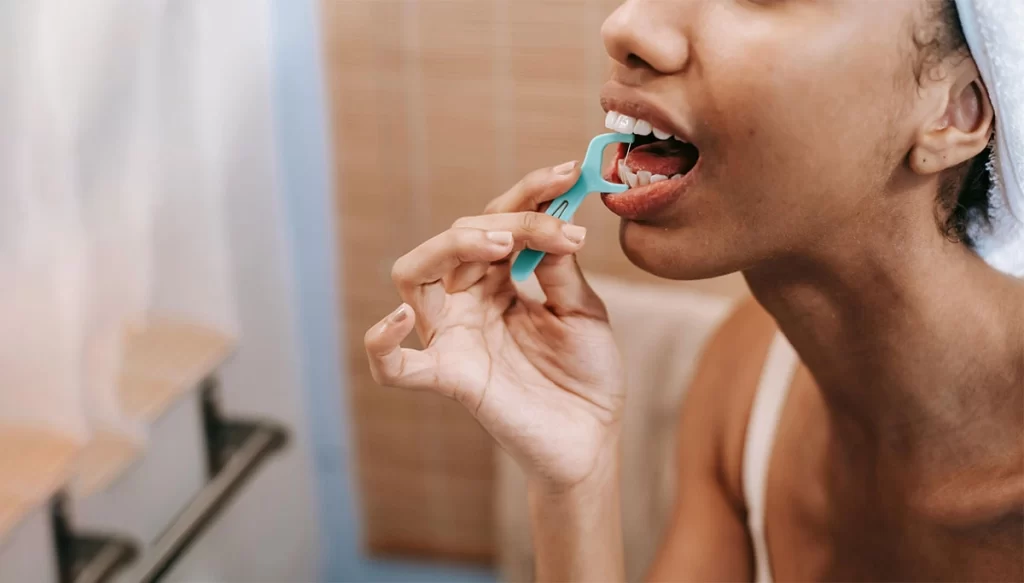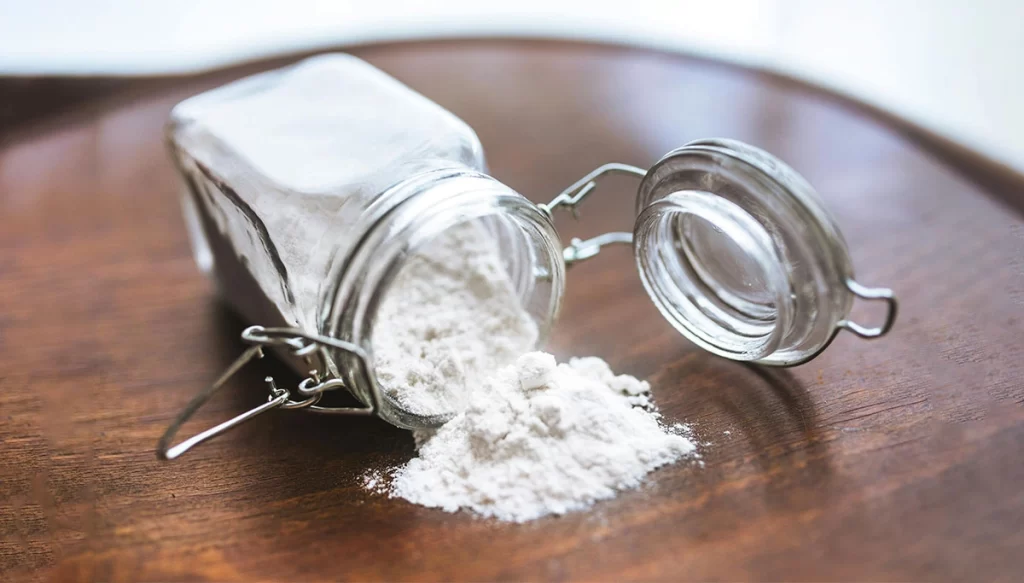
Dental implants continue to be a popular alternative to bridges or dentures for restoring lost or extracted teeth. If you’ve been considering dental implants to improve your smile, it’s also important to recognize what’s involved in caring for them. Good dental implant care is imperative for gum health and extending the life of your implants. Implants are designed to last decades. and they can with the proper care. According to a study found in the National Library of Medicine, candidates reported a 97% success rate at the 10-year mark with their implants.
In this article, we provide you with tips on how to care for your dental implants:

Brushing and flossing are staples of any oral care routine and it’s especially important for those who have dental implants. Plaque and bacteria can easily accumulate around implants so you must be diligent about brushing and flossing to keep them clean and your mouth healthy.
Your dentist may provide you with instructions and a starter supply of dental implant floss. Dental implant floss is also readily available in the oral care aisle. Its design differs from conventional floss, allowing you to reach around important oral structures to clean your implants thoroughly.
When your dental implant is first installed, you may feel more sensitive to oral care products, including stiff bristle toothbrushes. A soft nylon bristle toothbrush can minimize discomfort while cleaning areas around your implant from debris and plaque buildup.
An interdental brush is designed to reach between dental implants. Its conical shape comfortably reaches small areas around the base of dental implants and ensures thorough hygiene in easy-to-miss areas.
Water flossers are great to reach where manual brushes can’t and gently apply pressurized water along implant groves and around your gums. They’re great for rinsing as well as removing lodged particles your toothbrush or traditional floss can’t reach. Be mindful to also choose a water flosser that is approved by the American Dental Association.

Abrasive products can irritate your gums and dental implants and can scratch or erode dental implant materials over time. It’s best to stick with products, including toothpaste and mouthwash, that are approved for use with dental implants. Avoid metal oral health tools to prevent potentially damaging your new implants.
Avoid over-the-counter products that contain the following ingredients:

Diet changes may be necessary when you have dental implants such as foods that are too abrasive, hard, or sticky. Your periodontist may recommend avoiding certain foods during the healing process however they may also recommend that you stop eating some of these foods altogether to reduce the risk of fracturing your implants.
Some of these foods include:
Immediately after implant surgery and until your implant site heals, you will have a restrictive diet and may be advised to avoid the following:
These types of food can contribute to a higher risk of infection or early implant failure. Seeds, pasta, and grains can become stuck around your implants and be difficult to clear during your oral hygiene routine. Also, avoid using a straw until your implants have healed, as the suction can damage the surgical sites.
Cleaning your dental implants is similar to caring for natural teeth. Your daily oral care routine after your implants heal will look similar to this:
Your periodontist and surgeon will outline any immediate after-care instructions post-surgery. Follow these guidelines carefully to prevent early implant failure, improper healing, or potential infection.
Your periodontist will review the risks and benefits of dental implants and the step-by-step implant process to help you decide if they’re right for you. Most concerns with dental implants are directly related to post-op care – following the instructions you are given by your dental provider is the best way to heal successfully. Some common implant problems that can be avoided with proper care include:
Think you’re ready for dental implants? Eriks Dental Group provides comprehensive dental services to Fort Lauderdale and surrounding communities. Our dental team offers compassionate care and helps our patients feel confident in their smiles. Schedule your appointment by calling 954-463-5051 or request an appointment online.
© 2026 Eriks Dental Group - Fort Lauderdale - All Rights Reserved. Dental Website Design by Connectica